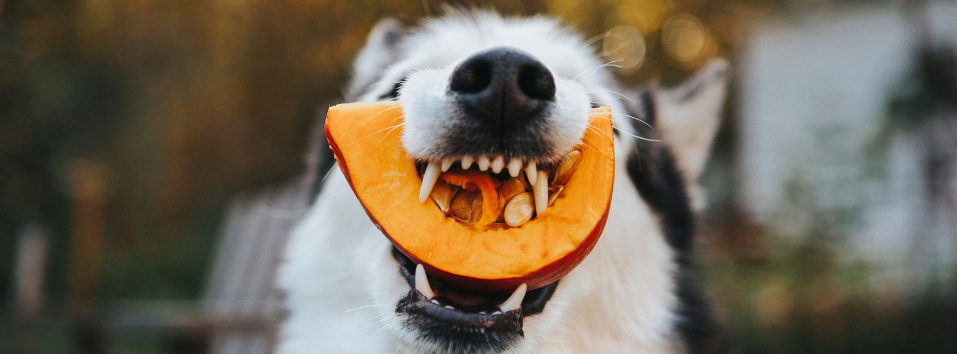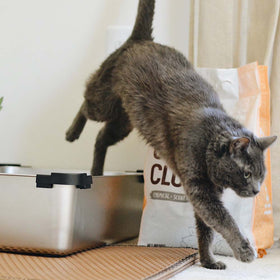
Longevity 101: The Crucial Role of Gut Health to Your Dog’s Well-Being
Did you know that one of the biggest pieces in the longevity puzzle is a healthy gut?
That’s right. Just like in humans, a healthy gut is essential for your pup’s physical and mental well-being. From digestion and immunity to mood and behaviour, the gut plays a pivotal role in every aspect of your dog’s life.
Why Gut Health Matters
The gut is more than just a digestive organ; it’s a bustling ecosystem teeming with trillions of bacteria, fungi, and other micro-organisms known as the gut microbiome. This dynamic community of microbes not only helps break down food and absorbs nutrients but also plays a critical role in regulating the immune system, producing essential vitamins and neurotransmitters, and even influencing mood and behaviour.
When the gut microbiome is in balance, your dog thrives. But when it’s thrown out of whack—whether due to poor diet, stress, medications, or other factors—a host of health issues can be the result.
Nourishing Your Dog’s Gut
The good news is that you have the power to support your dog’s gut health and keep their microbiome flourishing.
Feed a Fresh, Nutrient-Dense Diet
Opt for whole, minimally processed foods that are rich in fibre, antioxidants, and essential nutrients. Fresh fruits and vegetables, fresh proteins, and healthy fats are the building blocks of a healthy gut.
Feeding a variety of foods is also important. Human studies have proven that an ultra-processed diet (which kibble is) is “associated with a higher risk of adverse health outcomes, especially cardiometabolic, common mental disorder, and mortality outcomes.”
Include Gut-Friendly Foods
Incorporate foods that are known to support gut health, such as blueberries, turkey tail mushroom, steel-cut oats, and leafy greens. These foods are packed with fibre, prebiotics, and beneficial compounds that nourish the gut microbiome.
Limit Toxins and Chemicals
It’s important to minimize your dog’s exposure to pesticides, processed foods, and environmental toxins. These things disrupt the gut microbiome and compromise overall health.
Manage Stress
Just like in humans, chronic stress can take a toll on your dog’s gut health. To keep stress levels in check, provide plenty of opportunities for relaxation, play, and mental stimulation and enrichment.
Consider Gut-Supporting Supplements
If your dog has to go on antibiotics, use prebiotics and probiotics during and afterwards. Also, add sprinkles of inulin or psyllium to their food every so often. For dogs struggling with major imbalances, oral FMT supplementation can be very successful for restoration.
Keep Your Dog Active and Maintain a Healthy Weight
In addition to diet and lifestyle, it’s crucial to ensure your dog remains active and maintains a healthy weight. A sedentary lifestyle and excess weight can disrupt the balance of bacteria in your dog’s gut, leading to inflammation, decreased nutrient absorption, and a weakened immune system. Regular exercise not only helps your dog stay fit but also promotes healthy digestion and keeps their gut microbiome in balance.
The Bottom Line
During our Gut Week series on social media, we provided lots of ideas for some wonderful additions to your dog’s bowl (make sure you read the captions!), and we also have a handy (and free!) Bowl Boost PDF that might help. You can also book a one-on-one consultation.
A happy gut equals a happy dog. By prioritizing your dog’s gut health and making mindful choices about their diet, lifestyle, and environment, you can help them thrive from the inside out.
Further Reading
Here are just a few of the studies we found supporting the importance of a healthy gut microbiome.
Fresh Food Is Best
Gut Microbiota: An Important Link Between Western Diet and Chronic Diseases (PubMed Central)
Pet Food Studies (Raw Pet Food Research Database)
The Gut–Brain Axis
The Role of Diet on the Gut Microbiome, Mood and Happiness (PubMed Central)
Allergies
Relationship between Gut Microbiota and Allergies in Children: A Literature Review (PubMed Central)
Food Allergy and the Microbiome: Current Understandings and Future Directions (PubMed Central)
Inflammation
The Gut Microbiota and Inflammation: An Overview (PubMed Central)
The Gut–Heart Axis
The Gut–Liver Axis
Gut–Liver Axis: How Do Gut Bacteria Influence the Liver? (PubMed Central)
The Immune System
Impact of the Microbiome on the Immune System (PubMed Central)
The Microbiome and Autoimmune Disorders
The Dynamic Interplay Between the Gut Microbiota and Autoimmune Diseases (PubMed Central)









